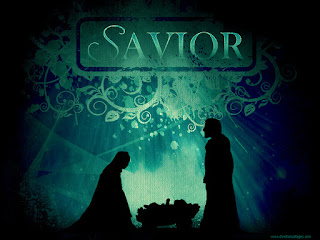Incarnation
"Incarnation" is one of those fancy, theological words that, usually, we only hear around Christmas. It's a word that, for Christians, refers to Jesus, the Son of God, becoming flesh and living among us (as John puts it in the beginning of his Gospel, John 1:14). This idea was so important to John that, when he writes these letters, he returns to that theme. He goes so far as to say that someone who denies the incarnation, someone who denies that the Son of God put on flesh and walked among us, has the "spirit of antichrist" (1 John 4:3).
Now, that doesn't mean such a person is some supposed end-times ruler. No, John, in fact, goes on to say that such a spirit is already loose in his world in his day. The spirit of antichrist is any attitude or belief that threatens or denies belief in Jesus—and it's a spirit that's been working since Jesus' time on earth. And for John, someone who denies belief in Jesus coming in the flesh has that spirit.
Why is this so important to John? What is the incarnation, for him, a "make or break" belief? There were folks who considered themselves Christians in John's day who said Jesus was just a man, a holy man to be sure, but just a man. There were others who said that Jesus just appeared to be a man and therefore he just appeared to die on the cross. He didn't really. It was all a show. He was just a spirit, untouchable by the stain and dirt of the world.
Can't you see Mary (whom John cared for in the latter part of her life) saying, "They want to say Jesus wasn't a man? Then why in the world did I go through all those hours of labor to bring him into this world? And don't even get me started on the stable! Joseph couldn't even take me to a hospital..."
John's point is this: Jesus was neither just a man or just a spirit. He was God incarnate. He was God in the flesh. Fully God and fully human, in some way we can't quite comprehend. This is so important because only God could save us. And he could only save us by offering himself as the physical sacrifice for sin. If either of the other ideas were true, Jesus was not the savior. He could not save. And therefore, our Christian faith is worthless.
Some today like to say that Jesus and the Christian faith is just about "love and peace and goodness." And it is about love. The one who came to save us said, over and over, to love each other. But there are deeper things going on here. This faith is about real salvation from real sin and real death. Only Jesus, the real Son of God, becoming real flesh could save us in that way. John says if someone tells you otherwise, they are wrong. They are a false prophet. Beware, John says.
The incarnation is that important. It's not just a nice word for Christmas. It's the only hope we have.



Comments
Post a Comment